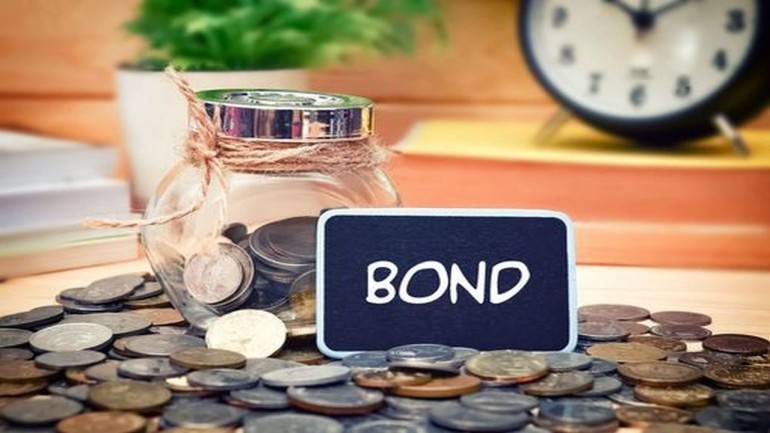
Few days ago, one of my group members asked me whether we should invest into Bond. I guess this is probably the same question many sincere investors are asking once in a while. High bond yields have been making big issue with bold headlines in the recent economic news. It seemingly makes us feel as if whoever does not invest into bond, we are missing a big junk of goodies in our return of investment.
Furthermore, Fundsupermart (FSM) has recently moved into a new page dedicated to selling bond. And their promotion slogan is saying that “retail” investor can now buy bond. It makes us confused with two issues; Firstly, Bond Funds are already available in mutual fund platform, why does Fundsupermart (FSM) wants to venture into another page on Bond purchase altogether? Secondly, why did FSM said “retail” investor can buy bond now, are we not buying them all this while? Or are they saying we can buy those real bonds directly now?
Description of Bond
Let me first quote from FSM’s description which explained perfectly in lay man term what bond is all about:
“Bonds are basically loans issued by companies, government linked companies, states and governments. When you purchase bonds, you are essentially lending money to the bond issuer. In return, the bond issuer will pay a steady stream of coupon payments (also known as interest payments) at a fixed rate over a predetermined period, which was agreed at the time of purchase. The investor will then get back the borrowed amount (also known as face value, par value or principal amount), on the maturity date, the date of which repayment was agreed on.
Bonds are issued to raise money and finance a variety of projects and activities. Owners of bonds are debt holders, or creditors, of the issuer.”
This is basically about bond in general. This is also what we read when economic news talks about bond yield falling or rising in the market. Some experts use it as indicator to gauge global recession recently. It was also the major cause for devastating market correction in February 2018.
Good thing about these bonds are the returns are almost guaranteed like a fixed deposit with interest given in interim. But the interest rate (they technically called it “coupon rate”) is higher, ranging around 5-13% or higher per annual. But it nevertheless comes with a certain risk, like default risk when the issuers go into bankruptcy where investors end up empty or the bond value can also be fluctuated in the secondary market as time moves on. If any holder decides to depose prematurely, he will end up losing as well. However, upon maturity, all buyers can take back the entire principal amount as initially invested like a fixed deposit.
Rich Man Toys
However the above bond description did not specify who those bond buyers are. It looks like everyone can buy bonds. In fact this is not true. Bonds are basically rich man toys. They are sold in large amount per lot counting in the million dollars or ringgit worth on every purchase. They are often transacted over the counter (OTC) with respective parties represented. Only those who are super rich or with institutional set up can deal with bond purchase transaction.

However the above bond description did not specify who those bond buyers are. It looks like everyone can buy bonds. In fact this is not true. Bonds are basically rich man toys. They are sold in large amount per lot counting in the million dollars or ringgit worth on every purchase. They are often transacted over the counter (OTC) with respective parties represented. Only those who are super rich or with institutional set up can deal with bond purchase transaction.
So we as smaller retail investors have no part to its transaction. The “retail” term used by FSM is still referred to rich individuals who have multi-million cash in their pockets looking for places to store up for value appreciation. They are the ones, the rich retail investors, can have an access to buy bond directly through FSM platform now.
Though we, the smaller retail investors still do not have any access into bond (technically called individual bond) purchase. But we can at least tier behind bond industries by buying bond fund through unit trust fund houses. Unit fund houses registered as financial institutes are able to buy individual bond on our behalf in large volume and they act as recipients for interim coupon rate payment on behalf of fund investors.
Though the nature of these bond funds might feature entirely different than individual bond, we do enjoy their stable capital appreciation over time. Bond fund houses receive full benefit of coupon interest payment regularly and they in return buy more individual bond to capitalize net asset value appreciation.
Bond Fund Dividend Distribution
Please do not be confused with bond fund dividend distribution and coupon interest rate payment. Bond fund dividend distribution, like any other unit trust equity fund dividend distribution, is merely an exercise of fund house’s internal rearrangement of book record. It brings no benefit at all to individual fund investors. Whenever distribution is given, your NAV will be deducted according to the rate of dividend which is about to be distributed into your holding. (For more discussion, please read Misleading Information 3.)
The way bond fund house receives couple interest will be the same way as share holder receiving his dividend payment. Upon receiving those coupon payments, bond fund house can decide to reinvest them back into the bond market and these reinvestments will ultimately bring asset appreciation to benefit fund investors.
Nevertheless, unit trust investor can also make use bond fund in the same way as those supper rich multi-millionaires to offset investment risk. Bond fund’s price movement normally does not follow equity market. Hence it can be treated as safe haven against any market volatility. In time of market uncertainty like current market condition, bond fund can be used as a defensive weapon against negative market sediment. Its rate of return if placed in a year or beyond, does give a return better than fixed deposit from banks. Furthermore, it has no lock up period required like FD. The return in the form of capital appreciation is given on a daily basis.

Use of Bond Fund
Table A is a sample bond fund generated from FSM. We as (small) retail investor can make use as a defense for our portfolio. The highest return as in Affin Hwang Global Sukuk Fund can generate annual return of 11.47% as seen now. But it comes with a risk rating of the 4th category. If anyone does not like such a high risk, AmBond with a risk rating of merely 2 and generated 8.41% annual return would be the best option.
In the coming blogs, if God permits, I shall write how to maximize the use of these bond funds as defensive weapons and introduce some of the best money generating funds we can strategically use to increase our net worth in a long run.
Please stay tune and subscribe, if you have not done so, for immediate post update.
Press Here to go to Front Page
Please press “like” button below this article (if you have not done so) for email alert whenever new releases are out for public viewing. If you have any comment, please make use of the comment section below for readers’ interaction.
Disclaimer
The view and opinion expressed are personal views of the author and are subject to change based on market and other conditions. This write up does not constitute sole advice for investment decision. Investors are advised to do further reading and research to conclude individual decision.

2 thoughts on “Should We Invest into Bond?”